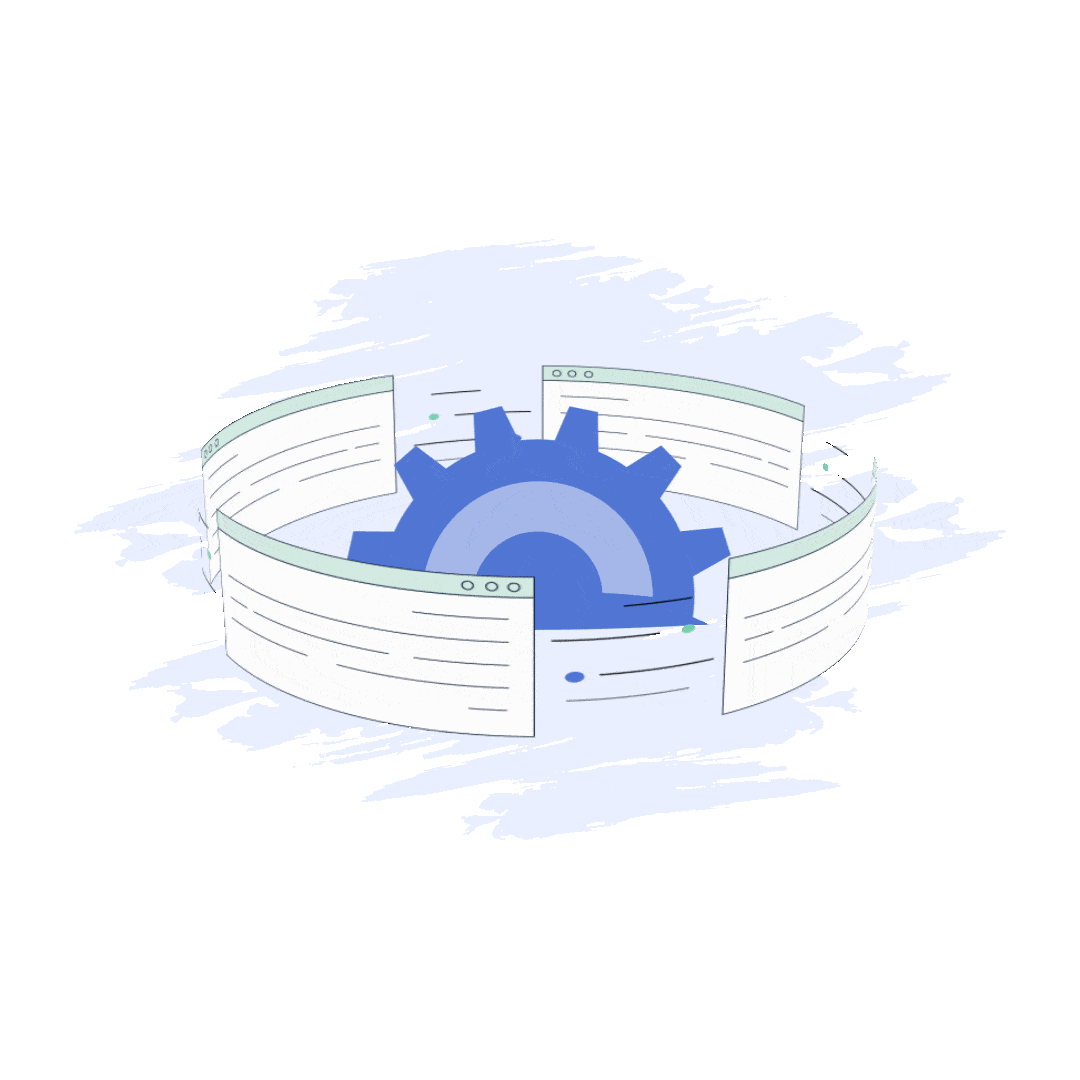Why Zamp?
Combining technology and help from sales tax experts is a game changer.
We do the heavy lifting, so you don’t have to.

Fully Managed Solution
Stressing over sales tax is a thing of the past. All you do is click approve, and we handle the rest. You'll always be up-to-date and sales tax compliant.

Developer Friendly Sales Tax API
Connect your existing e-commerce, marketplace & ERP systems within minutes, and use Zamp’s API for roof-top accurate sales tax calculations.

One Price
One simple price that scales with your business. No overages, no hidden fees, no surprises.
Online Sales Tax API
The digital economy has fundamentally transformed the landscape of sales tax compliance, adding layers of complexity to what was already a challenging domain. As more transactions shift online, businesses are confronted with the hefty challenge of navigating through a maze of varying sales tax laws that span different jurisdictions.
It's here that APIs become crucial, stepping in to modernize e-commerce by automating and simplifying the process of calculating sales tax for online sales. This technological innovation not only streamlines operations but also ensures that businesses can efficiently meet their compliance obligations without getting bogged down by the intricacies of tax laws.
Understanding Online Sales Tax API
Think of an online sales tax API as the unsung hero of the e-commerce world. It's a digital bridge that takes the headache out of figuring out sales tax for every single purchase made on your site. Whether someone's buying a laptop in New York or a pair of sneakers in California, this tool crunches the numbers in real-time, factoring in what's being bought, where the buyer is, and the maze of tax laws that apply.
Integrating a sales tax API into your e-commerce platform or accounting system is a bit like setting up autopilot. It takes over the tedious task of calculating sales taxes, so you don't have to manually dig through tax tables or stress about keeping up with law changes. This not only makes your life easier but also keeps you on the right side of the law, avoiding penalties for any sales tax missteps.
But it's not just about dodging fines. This automation makes the checkout process smoother for your customers, too, ensuring they see the exact tax amount they'll be paying, no surprises. And for you, it opens up a treasure trove of insights. The data you get from your sales tax API can help you understand your tax obligations better and make smarter business decisions.
Selecting the Right Sales Tax API for Your Business
When choosing the perfect sales tax API for your e-commerce platform you've got to consider the whole package: how accurate it is, how easily it blends into your existing setup, and whether it's there for you when you need support.
You also want a sales tax API that can handle the early days of small sales volumes and still keep up when you're ringing up sales faster than you can count. It needs to be able to grow with you, adjusting as your business expands and as tax laws evolve.
Reliability, on the other hand, is about knowing it can handle the pressure, no matter how high the transaction volumes get. The last thing you want is for things to crash at the worst possible moment. You need an API that's as steady and dependable as a rock.
But here's the clincher: you also need a sales tax API that can integrate smoothly with your existing systems. Integration shouldn't be a headache. If it feels like you're trying to fit a square peg into a round hole, it might not be the right match. And when you hit a snag or have a burning question, good customer support can make all the difference..
Book a call today
We'll answer all of your sales tax questions & address any of your concerns to ensure that you never have to worry about sales tax again-
1Book a free 30 minute call
-
2Meet with one of our experts
-
3Get sales tax off your plate
The digital economy has fundamentally transformed the landscape of sales tax compliance, adding layers of complexity to what was already a challenging domain. As more transactions shift online, businesses are confronted with the hefty challenge of navigating through a maze of varying sales tax laws that span different jurisdictions.
It's here that APIs become crucial, stepping in to modernize e-commerce by automating and simplifying the process of calculating sales tax for online sales. This technological innovation not only streamlines operations but also ensures that businesses can efficiently meet their compliance obligations without getting bogged down by the intricacies of tax laws.
Understanding Online Sales Tax API
Think of an online sales tax API as the unsung hero of the e-commerce world. It's a digital bridge that takes the headache out of figuring out sales tax for every single purchase made on your site. Whether someone's buying a laptop in New York or a pair of sneakers in California, this tool crunches the numbers in real-time, factoring in what's being bought, where the buyer is, and the maze of tax laws that apply.
Integrating a sales tax API into your e-commerce platform or accounting system is a bit like setting up autopilot. It takes over the tedious task of calculating sales taxes, so you don't have to manually dig through tax tables or stress about keeping up with law changes. This not only makes your life easier but also keeps you on the right side of the law, avoiding penalties for any sales tax missteps.
But it's not just about dodging fines. This automation makes the checkout process smoother for your customers, too, ensuring they see the exact tax amount they'll be paying, no surprises. And for you, it opens up a treasure trove of insights. The data you get from your sales tax API can help you understand your tax obligations better and make smarter business decisions.
Selecting the Right Sales Tax API for Your Business
When choosing the perfect sales tax API for your e-commerce platform you've got to consider the whole package: how accurate it is, how easily it blends into your existing setup, and whether it's there for you when you need support.
You also want a sales tax API that can handle the early days of small sales volumes and still keep up when you're ringing up sales faster than you can count. It needs to be able to grow with you, adjusting as your business expands and as tax laws evolve.
Reliability, on the other hand, is about knowing it can handle the pressure, no matter how high the transaction volumes get. The last thing you want is for things to crash at the worst possible moment. You need an API that's as steady and dependable as a rock.
But here's the clincher: you also need a sales tax API that can integrate smoothly with your existing systems. Integration shouldn't be a headache. If it feels like you're trying to fit a square peg into a round hole, it might not be the right match. And when you hit a snag or have a burning question, good customer support can make all the difference..
Book a call today
We'll answer all of your sales tax questions & address any of your concerns to ensure that you never have to worry about sales tax again-
1Book a free 30 minute call
-
2Meet with one of our experts
-
3Get sales tax off your plate
Automated Sales Tax Reporting and Filing FAQ
An online sales tax API is a digital tool that automates the calculation of sales tax for e-commerce transactions by integrating with your online store or financial software and accessing up-to-date tax rates and regulations.
By automating sales tax calculations, an online sales tax API reduces manual effort, ensures accuracy in tax collection, and helps businesses remain compliant with changing tax laws, thereby streamlining the entire sales tax management process.
When selecting an online sales tax API, it's essential to consider factors such as accuracy, ease of integration with existing systems, scalability to handle transaction volume, reliability, and the quality of customer support provided by the API provider.
Yes, many online sales tax APIs are designed to handle multi-jurisdictional tax compliance by automatically calculating the appropriate tax rates based on the location of the buyer and the product or service being sold, ensuring compliance across various tax jurisdictions.
Pricing for online sales tax API solutions can vary depending on factors such as the features offered, the volume of transactions processed, and the level of support provided. Some providers offer subscription-based pricing plans, while others may charge based on usage or transaction volume. It's essential to review the pricing structure and choose a plan that aligns with your business's needs and budget.
Book a call today
We'll answer all of your sales tax questions & address any of your concerns to ensure that you never have to worry about sales tax again-
1Book a free 30 minute call
-
2Meet with one of our experts
-
3Get sales tax off your plate


